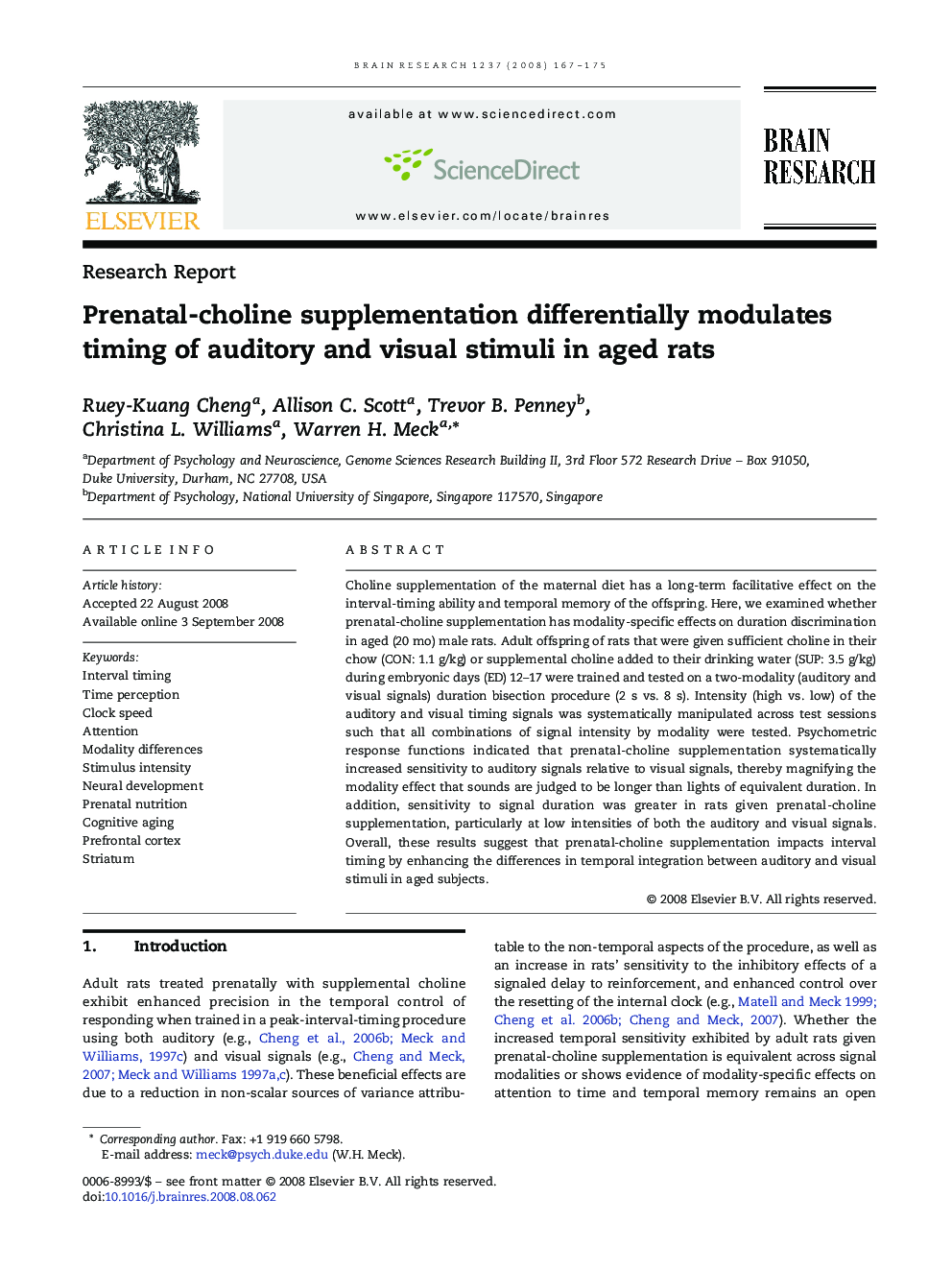| Article ID | Journal | Published Year | Pages | File Type |
|---|---|---|---|---|
| 4329266 | Brain Research | 2008 | 9 Pages |
Abstract
Choline supplementation of the maternal diet has a long-term facilitative effect on the interval-timing ability and temporal memory of the offspring. Here, we examined whether prenatal-choline supplementation has modality-specific effects on duration discrimination in aged (20Â mo) male rats. Adult offspring of rats that were given sufficient choline in their chow (CON: 1.1Â g/kg) or supplemental choline added to their drinking water (SUP: 3.5Â g/kg) during embryonic days (ED) 12-17 were trained and tested on a two-modality (auditory and visual signals) duration bisection procedure (2Â s vs. 8Â s). Intensity (high vs. low) of the auditory and visual timing signals was systematically manipulated across test sessions such that all combinations of signal intensity by modality were tested. Psychometric response functions indicated that prenatal-choline supplementation systematically increased sensitivity to auditory signals relative to visual signals, thereby magnifying the modality effect that sounds are judged to be longer than lights of equivalent duration. In addition, sensitivity to signal duration was greater in rats given prenatal-choline supplementation, particularly at low intensities of both the auditory and visual signals. Overall, these results suggest that prenatal-choline supplementation impacts interval timing by enhancing the differences in temporal integration between auditory and visual stimuli in aged subjects.
Keywords
Related Topics
Life Sciences
Neuroscience
Neuroscience (General)
Authors
Ruey-Kuang Cheng, Allison C. Scott, Trevor B. Penney, Christina L. Williams, Warren H. Meck,
